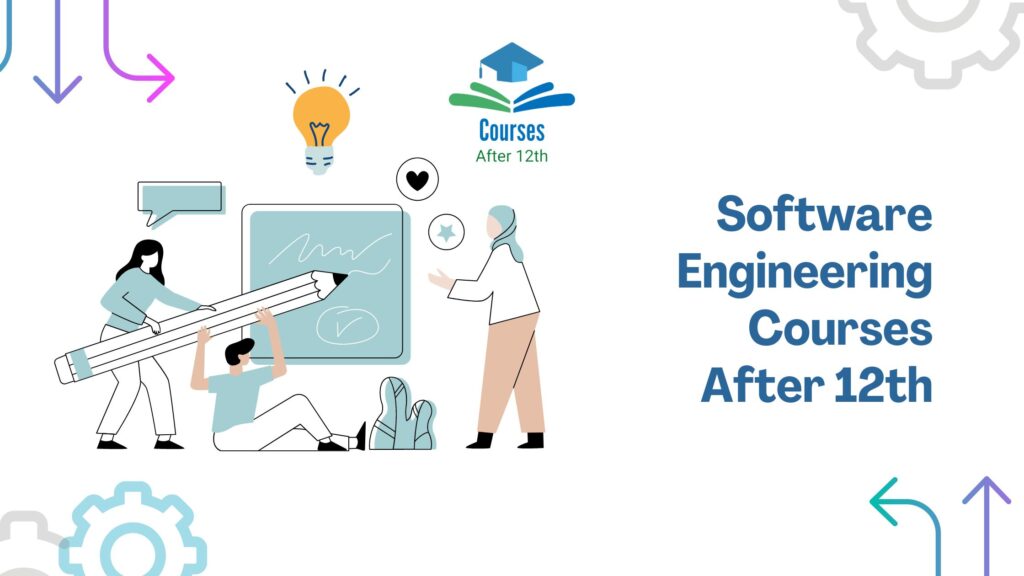
Are you a recent high school graduate with a passion for technology and problem-solving? If so, you’re in luck! This article is here to guide you through the exciting journey of pursuing software engineering courses after completing your 12th grade. From understanding the course structure to exploring the fees and duration, we’ve got you covered on your quest to become a skilled software engineer.
In today’s digital age, software engineering plays a pivotal role in shaping the world around us. From mobile apps to complex software systems, software engineers are the driving force behind technological innovation. If you’re intrigued by technology and want to make your mark in the digital landscape, pursuing software engineering courses after 12th grade could be the perfect choice for you. Also, Microbiology Courses After 12th will help you to choose the best course in microbiology according to your interest.
Why Choose Software Engineering After 12th?
The field of software engineering offers numerous advantages for young graduates. With the increasing reliance on technology, there is a growing demand for skilled software engineers across industries. By choosing software engineering, you’re not just picking a career; you’re stepping into a world of opportunities that can lead to financial stability, creativity, and personal growth.
Exploring Software Engineering Courses
- Foundational Courses: Before delving into the intricacies of specialized software engineering fields, it’s essential to build a strong foundation. Foundational courses typically cover programming languages, data structures, algorithms, and software development methodologies. These courses provide the building blocks necessary for understanding more advanced concepts.
- Advanced Specializations: Once you’ve mastered the basics, you can explore a variety of specialized areas within software engineering. These could include mobile app development, web development, artificial intelligence, machine learning, cybersecurity, and more. Specializing in one or more of these fields will open up doors to exciting career prospects.
Fees and Duration of Software Engineering Programs
Software Engineering Courses After 12th Fees
The fees for software engineering programs can vary widely based on factors such as the reputation of the institution, the program’s level (bachelor’s, master’s, etc.), and the resources offered. Private universities might have higher fees compared to government-funded institutions, but they could also offer more extensive facilities and industry connections.
Software Engineering Courses After 12th How Many Years?
The duration of software engineering programs can range from 3 to 5 years for a bachelor’s degree, depending on the country and the specific curriculum. Master’s programs generally span 1 to 2 years. It’s important to consider the time investment required and align it with your career goals.
Financial Planning and Scholarships
Pursuing higher education, especially in specialized fields like software engineering, can be a significant financial commitment. However, many universities offer scholarships and financial aid to deserving students. Research and apply for scholarships that can alleviate the financial burden and make your educational journey more affordable.
Online vs. Offline Learning: Which is Right for You?
With the rise of online education, you have the option to choose between traditional offline classes and online programs. Online courses offer flexibility, allowing you to study at your own pace and often at a lower cost. However, traditional offline programs provide a structured learning environment and direct interaction with professors and peers.
Top Universities Offering Software Engineering Courses
Several renowned universities around the world offer top-notch software engineering programs. These include institutions like Massachusetts Institute of Technology (MIT), Stanford University, University of California, Berkeley, and more. Research their offerings, faculty, and industry connections to find the best fit for you.
Internships and Real-World Experience
Gaining real-world experience is invaluable in the field of software engineering. Internships allow you to apply theoretical knowledge in practical scenarios, work on real projects, and gain exposure to the industry’s best practices. Many universities facilitate internships, and actively seeking them out can give you a head start in your career.
Building a Strong Portfolio
In software engineering, a strong portfolio showcasing your projects and accomplishments can often speak louder than academic qualifications alone. Building your own projects, contributing to open-source initiatives, and participating in hackathons can help you create a portfolio that impresses potential employers.
Future Prospects in the Software Industry
The software industry is evolving rapidly, with new technologies and trends emerging frequently. As a software engineer, you’ll be at the forefront of innovation, shaping the way we interact with technology. The demand for software engineers is expected to remain strong, providing ample job opportunities and career growth.
Conclusion
Embarking on a journey in software engineering courses after completing your 12th grade is a bold step towards a promising future. With the right education, skills, and determination, you can carve a niche for yourself in the tech industry, contributing to groundbreaking advancements that shape our digital world.
FAQs
Is Software Engineering a 4-year course?
Yes, software engineering bachelor’s programs are typically 4 years in duration.
How can I prepare for Software Engineering after 12th?
Focus on mathematics, programming, and problem-solving skills. Consider foundational courses to build a strong base.
Can I join a software company after 12th?
While it’s possible to enter entry-level positions, pursuing higher education enhances your skills and opportunities.
What is the eligibility to become a software engineer?
Most software engineering programs require a background in science or engineering, though prerequisites can vary.
